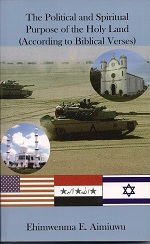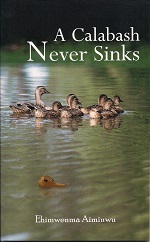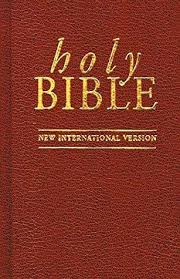Let’s take an in-depth study and find out
The word “Christmas” means “Mass of Christ,” or, as it came to be shortened, “Christ-Mass.” It came to non-Christians and Protestants from the Roman Catholic Church. And where did they get it? NOT from the New Testament — NOT from the Bible — NOT from the original apostles who were personally instructed by Christ — but it gravitated in the fourth century into the Roman Church from paganism.
Since the celebration of Christmas has come to the world from the
Roman Catholic Church, and has no authority but that of the Roman
Catholic Church, let us examine the Catholic Encyclopedia, 1911
edition, published by that church. Under the heading “Christmas,” you
will find:
“Christmas was not among the earliest festivals of the Church …
the first evidence of the feast is from Egypt.” “Pagan customs
centering around the January calends gravitated to Christmas.”
And in the same encyclopedia, under the heading “Natal Day,” we
find that the early Catholic father, Origen, acknowledged this
truth: “… In the Scriptures, no one is recorded to have kept a
feast or held a great banquet on his birthday. It is only sinners
[like Pharaoh and Herod] who make great rejoicings over the day in
which they were born into this world” (emphasis ours).
Encyclopedia Britannica, 1946 edition, has this: “Christmas (i.e.,
the Mass of Christ) …. Christmas was not among the earliest
festivals of the church ….”It was not instituted by Christ or the
apostles, or by Bible authority. It was picked up afterward from
paganism. The Encyclopedia Americana, 1944 edition,
says: “Christmas …. It was, according to many authorities, not
celebrated in the first centuries of the Christian church, as the
Christian usage in general was to celebrate the death of remarkable
persons rather than their birth ….” (The “Communion,” which is
instituted by New Testament Bible authority, is a memorial of the
death of Christ.) “… A feast was established in memory of this
event [Christ’s birth] in the fourth century. In the fifth century
the Western Church ordered it to be celebrated forever on the day of
the old Roman feast of the birth of Sol, as no certain knowledge of
the day of Christ’s birth existed.”
Now notice! These recognized historical authorities show Christmas
was not observed by Christians for the first two or three hundred
years — a period longer than the entire history of the United States
as a nation! It got into the Western, or Roman, Church, by the fourth
century A.D. It was not until the fifth century that the Roman Church
ordered it to be celebrated as an official Christian festival!
Jesus Not Born December 25th
Jesus was not even born in the winter season! When the Christ-
child was born “there were in the same country shepherds abiding in
the field, keeping watch over their flock by night” (Luke 2:8). This
never could have occurred in Judaea in the month of December. The
shepherds always brought their flocks from the mountainsides and
fields and corralled them not later than October 15, to protect them
from the cold, rainy season that followed that date. Notice that the
Bible itself proves, in Song of Solomon 2:11 and Ezra 10:9, 13, that
winter was a rainy season not permitting shepherds to abide in open
fields at night.
“It was an ancient custom among Judaeans of those days to send out
their sheep to the fields and deserts about the Passover (early
spring), and bring them home at commencement of the first rain,”
(Adam Clarke Commentary)
Continuing, this authority states: “During the time they were out,
the shepherds watched them night and day. As … the first rain began
early in the month of Marchesvan, which answers to part of our
October and November [begins sometime in October], we find that the
sheep were kept out in the open country during the whole summer. And,
as these shepherds had not yet brought home their flocks, it is a
presumptive argument that October had not yet commenced, and that,
consequently, our Lord was not born on the 25th of December, when no
flocks were out in the fields; nor could He have been born later than
September, as the flocks were still in the fields by night. On this
very ground, the nativity in December should be given up. The feeding
of the flocks by night in the fields is a chronological fact … See
the quotations from the Talmudists in Lightfoot.”
Any encyclopedia, or any other authority, will tell you that Christ
was not born on December 25. The Catholic Encyclopedia frankly states
this fact.
The exact date of Jesus’ birth is entirely unknown If God had
wished us to observe and celebrate Christ’s birthday, He would not
have so completely hidden the exact date.
How This Pagan Custom Got into the Christian Church
Then how did this pagan custom creep into the Western Christian
world?
The New Schaff-Herzog Encyclopedia of Religious Knowledge explains
it clearly, in its article on “Christmas”: “How much the date of the
festival depended upon the pagan Brumalia (Dec. 25) following the
Saturnalia (Dec. 17-24), and celebrating the shortest day of the year
and the ‘new sun’ … cannot be accurately determined. The pagan
Saturnalia and Brumalia were too deeply entrenched in popular custom
to be set aside by Christian influence …. The pagan festival with
its riot and merrymaking was so popular that Christians were glad of
an excuse to continue its celebration with little change in spirit
and in manner. Christian preachers of the West and the Near East
protested against the unseemly frivolity with which Christ’s birthday
was celebrated, while Christians of Mesopotamia accused their Western
brethren of idolatry and sun worship for adopting as Christian this
pagan festival.”
Remember, the Roman world had been pagan. Prior to the fourth
century, Christians were few in number, though increasing, and were
persecuted by the government and by pagans. But, with the advent of
Constantine as emperor, who made his profession of Christianity in
the fourth century, placing Christianity on an equal footing with
paganism, people of the Roman world began to accept this now-popular
Christianity by the hundreds of thousands.
But remember, these people had grown up in pagan customs, chief of
which was this idolatrous festival of December 25th. It was a
festival of merrymaking, with its special spirit. They enjoyed it!
They didn’t want to give it up! Now this same article in the New
Schaff-Herzog Encyclopedia of Religious Knowledge explains how the
recognition by Constantine of Sunday, which had been the day of pagan
sun worship, and how the influence of the pagan Manichaeism, which
identified the SON of God with the physical SUN, gave these pagans of
the fourth century, now turning over wholesale to “Christianity,”
their excuse for calling their pagan-festival date of December 25th
(birthday of the SUN-god), the birthday of the SON of God.
And that is how “Christmas” became fastened on our Western world!
We may call it by another name, but it’s the same old pagan sun-
worshipping festival still! The only change is in what we call it!
Again from the Encyclopaedia Britannica: “Certain Latins, as early
as 354, may have transferred the birthday from January 6th to
December 25, which was then a Mithraic feast … or birthday of the
unconquered SUN … The Syrians and Armenians, who clung to January
6th, accused the Romans of sun worship and idolatry, contending …
that the feast of December 25th, had been invented by disciples of
Cerinthus ….”
The Real Origin of Christmas
But if we got Christmas from the Roman Catholics, and they got it
from paganism, where did the pagans get it? Where, when, and what was
its real origin?
It is a chief custom of the corrupt system denounced all through
Bible prophecies and teachings under the name of Babylon. And it
started and originated in the original Babylon of ancient Nimrod!
Yes, it stems from roots whose beginning was shortly this side of the
Flood!
Nimrod, grandson of Ham, son of Noah, was the real founder of the
Babylonish system that has gripped the world, even today! Nimrod
built the tower of Babel, the original Babylon, ancient Nineveh, and
many other cities. He organized this world’s first kingdom. The name
Nimrod, in Hebrew, is derived from “Marad,” meaning “he rebelled.”
From many ancient writings, considerable is learned of this man,
who started the great organized worldly apostasy from God that has
dominated this world until now. Nimrod was so evil, it is said he
married his own mother, whose name was Semiramis. After Nimrod’s
untimely death, his so-called mother-wife, Semiramis, propagated the
evil doctrine of the survival of Nimrod as a spirit being. She
claimed a full-grown evergreen tree sprang overnight from a dead tree
stump, which symbolized the springing forth unto new life of the dead
Nimrod. On each anniversary of his birth, she claimed, Nimrod would
visit the evergreen tree and leave gifts upon it. December 25th was
the birthday of Nimrod. This is the real origin of the Christmas
tree.
Through her scheming and designing, Semiramis became the
Babylonian “Queen of Heaven,” and Nimrod, under various names, became
the “divine son of heaven.” Through the generations, in this
idolatrous worship, Nimrod also became the false Messiah, son of Baal
the Sun-god. In this false Babylonish system, the “Mother and Child”
(Semiramis and Nimrod reborn) became chief objects of worship. This
worship of “Mother and Child” spread over the world. The names varied
in different countries and languages. In Egypt it was Isis and
Osiris. In Asia, Cybele and Deoius. In pagan Rome, Fortuna and
Jupiterpuer. Even in Greece, China, Japan, Tibet is to be found the
counterpart of the Madonna, long before the birth of Christ!
Thus, during the fourth and fifth centuries, when the pagans of the
Roman world were “accepting” the new popular “Christianity” by the
hundreds of thousands, carrying their old pagan customs and beliefs
along with them, merely cloaking them with Christian-sounding names,
the Madonna and “Mother and Child” idea also became popularized,
especially at Christmas time. Every Christmas season you’ll hear sung
and chanted dozens of times the hymn “Silent Night, Holy Night,” with
its familiar “Mother and Child” theme. We, who have been born in such
a babylonish world, reared and steeped in these things all our lives,
have been taught to revere these things as holy and sacred. We never
questioned to see where they came from — whether they came from the
Bible, or from pagan idolatry!
We are shocked to learn the truth — some, unfortunately, take
offense at the truth! But God commands His faithful pastors, “Cry
aloud, spare not, lift up thy voice like a trumpet, and show my
people their transgression, and the house of Jacob their sins.”
(Isaiah 58:1)
Is is most alarming to find Christian ministers who know the truth,
yet, for fear of offending someone, remain silent about the pagan
practice of Christmas!
Shocking as these facts are, they are the true facts of history and
the Bible!
The real origin of Christmas goes back to ancient Babylon. It is
bound up in the organized apostasy which has gripped a deceived world
these many centuries! In Egypt, it was always believed that the son
of Isis (Egyptian name for “Queen of Heaven”) was born December 25th.
Paganism celebrated this famous birthday over most of the known world
for centuries before the birth of Christ.
December 25th is not the birthday of Jesus the true Christ! The
apostles and early true Church never celebrated Christ’s birthday at
any time. There is no command or instruction to celebrate it in the
Bible — rather, the celebrating of birthdays is a pagan, not a
Christian custom, believe it or not!
Thus the ancient idolatrous “Chaldean Mysteries,” founded by this
wife of Nimrod, have been handed down through the pagan religions
under new Christian-sounding names.
Origin of Holly Wreath, Mistletoe, Yule Log
Now where did we get this mistletoe custom? Among the ancient
pagans the mistletoe was used at this festival of the winter solstice
because it was considered sacred to the sun, because of its supposed
miraculous healing power. The pagan custom of kissing under the
mistletoe was an early step in the night of revelry and drunken
debauchery — celebrating the death of the “old sun” and the birth of
the new at the winter solstice. Mistletoe, sacred in pagan festivals,
is a parasite!
Holly berries were also considered sacred to the sun-god. The Yule
log is in reality the “sun log.” “Yule” means “wheel,” a pagan symbol
of the sun. Yet today professing Christians speak of the “sacred Yule-
tide season”!
Even the lighting of fires and candles as a Christian ceremony is merely a continuation of the pagan custom, encouraging the waning sun-god as he reached the lowest place in the southern skies!
The Encyclopedia Americana says: “The holly, the mistletoe, the Yule log … are relics of pre-Christian times.” Of paganism!
The book “Answers to Questions”, compiled by Frederick J. Haskins, found in public libraries, says: “The use of Christmas wreaths is believed by authorities to be traceable to the pagan customs of decorating buildings and places of worship at the feast which took place at the same time as Christmas. The Christmas tree is from Egypt, and its origin dates from a period long anterior to the Christian Era.”
Yes, and Even Santa Claus!
But surely dear old Santa Claus is not a creature of pagan birth? But he is, and his real character is not so benevolent and holy as many suppose!
Nigeria: Our Street
The name “Santa Claus” is a corruption of the name “St. Nicholas,”
a Roman Catholic bishop who lived in the 5th century. Look in the
Encyclopaedia Britannica, volume 19, pages 648-649, 11th edition,
where you’ll read: “St. Nicholas, bishop of Myra, a saint honored by
the Greeks and Latins on the 6th of December …. A legend of his
surreptitious bestowal of dowries on the three daughters of an
impoverished citizen … is said to have originated the old custom of
giving presents in secret on the Eve of St. Nicholas [Dec. 6],
subsequently transferred to Christmas day. Hence the association of
Christmas with Santa Claus ….”
Through the year, parents punish their children for telling
falsehoods. Then, at Christmas time, they themselves tell their
little children this “Santa Claus” lie! Is it any wonder many of
them, when they grow up and learn the truth, begin to believe God is
a myth, too?
One little fellow, sadly disillusioned about “Santa Claus,” said to
a playmate, “Yes, and I’m going to look into this ‘Jesus Christ’
business, too!” Is it Christian to teach children myths and
falsehoods? God says, “Thou shalt not bear false witness!” It may
seem right, and be justified by human reason, but God says, “There is
a way that seemeth right to a man, but the end thereof are the ways
of death!” “Old Nick” also is a term for the devil! Is there a
connection? Satan appears as an “angel of light,” to deceive! (II
Corinthians 11:14)
And so when we examine the facts, we are astonished to learn that
the practice of observing Christmas is not, after all, a true
Christian practice, but a pagan custom — one of the ways of Babylon
our people have fallen into!
What the Bible Says About the Christmas Tree
But if the Bible is silent about telling us to observe Christmas,
or recording any such observance by the apostles or early true
Church, it does have something to say about the Christmas tree!
This will come as a real surprise to many. But here it is:
Jeremiah 10:2-6: “Thus saith the Lord, Learn not the way of the
heathen …. For the customs of the people are vain: for one cutteth
a tree out of the forest, the work of the hands of the workman, with
the axe. They deck it with silver and with gold; they fasten it with
nails and with hammers, that it move not.”
There is a perfect description of the Christmas tree, termed by the
Eternal as “the way of the heathen — the customs of the people.” We
are commanded not to learn that way or follow it! It is also viewed
in this passage as idolatry. The fifth verse shows that these trees
cannot speak — cannot walk — must be carried. “Be not afraid of them;
for they [the trees] cannot do evil, neither also is it in them to do
good.” They are not gods to be feared. Some people misread this to
make it say there is no harm in having a Christmas tree, but that is
not what it says.
Isn’t Exchanging Gifts Scriptural?
But when it comes to the most important part of all in this
Christmas observance — the Christmas shopping season — the buying and
exchanging of gifts — many will exclaim triumphantly, “Well, at least
the Bible tells us to do that! Didn’t the wise men give gifts when
Christ was born?” A popular cliche today is: “The reason for the
season!”
Again, we are due for some surprises, when we learn the truth.
First, let’s look at the historic origin of trading gifts back and
forth, then see exactly what the Bible does say about it.
The fact is, this custom fastened upon people of exchanging gifts
with friends and relatives at the Christmas season has not a single
trace of Christianity about it, strange though that may seem! This
does not celebrate Christ’s birthday nor honor it or Him! Suppose
someone you love has a birthday. You want to honor that person on his
or her birthday. Would you lavishly buy gifts for everyone else,
trading gifts back and forth with all your other friends and loved
ones, but ignore completely any gift for the one whose birthday you
are honoring? Rather absurd, when viewed in that light, isn’t it?
Yet this is exactly what people the world over are doing! They
honor a day that is not Christ’s birthday by spending every dime they
can scrape together in buying presents to trade back and forth among
friends and relatives. Most pastors and ministers can say, that when
the month of December rolls around, nearly all professing Christians
forget to give gifts to Christ and His cause almost altogether!
December often is the most difficult month to keep their church’s
offerings up. People are too busy trading gifts back and forth among
themselves to think of Him and His Work, it seems. Then, in January
and even into February it seems they have to catch up from what they
spent for Christmas, so they seldom get back to normal in supporting
their church.
Now consider what the Bible says about the wise men giving gifts
when Christ was born. It is in Matthew 2:1-11. “Now when Jesus was
born in Bethlehem of Judaea in the days of Herod the king, behold,
there came wise men from the east to Jerusalem, saying, Where is he
that is born King of the Jews? … And when they were come into the
house, they saw the young child with Mary his mother, and fell down,
and worshipped him: and when they had opened their treasures, they
presented unto HIM gifts; gold, and frankincense, and myrrh.”
Why Gifts Presented to Christ
Now why did they present gifts to Him? Because it was His birthday?
Not at all, because they came up to two years after the date of His
birth! Was it to set an example for us, today, to trade gifts back
and forth among ourselves? No, notice carefully! They did not
exchange gifts among themselves, but “they presented unto HIM gifts.”
They gave their gifts to Christ, not to their friends, relatives, or
one another!
From the Adam Clarke Commentary, we read: “(They presented unto him
gifts.) The people of the east never approach the presence of kings
and great personages, without a present in their hands. The custom is
often noticed in the Old Testament, and still prevails in the east,
and in some of the newly discovered South Sea Islands.”
There it is! They were not instituting a new Christian custom of
exchanging gifts with friends to honor Christ’s birthday. They were
following an old and ancient eastern custom of presenting gifts to a
king when they came into his presence. They were approaching Him,
born our KING, in person. Therefore custom required they present
gifts even as the Queen of Sheba brought gifts to Solomon — even as
many people today take a gift along when they visit the White House
for an appointment with the President.
No, the custom of trading gifts back and forth does not stem from
this scriptural incident at all, but rather, as quoted from history
above, it is the continuance of an ancient pagan custom. Instead of
honoring Christ, it invariably retards His Work, often sets it back,
at the Christmas season every year.
Does It Really Honor Christ?
Now come two arguments often used to justify Christmas observance.
1. Many will reason this way: “But, even though the exact date of
Jesus’ birth is unknown, should we not select some date to celebrate
as His birthday?” The answer is positively NO! Did you not notice the
statement quoted from the Catholic Encyclopedia: “Sinners alone, not
saints, celebrate their birthdays.” The celebration of birthdays is
not a Christian, but a pagan custom, observed by sinners!
2. But, many still reason, “Even so — even though Christmas was a
pagan custom, honoring the false sun-god, we don’t observe it to
honor the false god, we observe it to honor Christ.”
But how does GOD answer in His Word? “Take heed to thyself that
thou be not snared by following them [the pagans in their
customs] … that thou enquire not after their gods, saying, How did
these nations serve their gods? even so will I do likewise. Thou
shalt not do so unto the Lord thy God: for every abomination to the
Eternal, which he hateth, have they done unto their gods….”
(Deuteronomy 12:30-31).
God says plainly in His Instruction Book to us, that He will not
accept that kind of worship, even though intended in His honor. To
Him, He says, it is offering what is abominable to Him, and therefore
it honors, not Him, but false pagan gods. GOD says we must not
worship Him according to the “dictates of our own conscience” — a
term we often hear. But Jesus said plainly, “God is a spirit: and
they that worship him must worship him in spirit and in truth” (John
4:24). And what is truth? God’s Word — the Holy Bible — said Jesus,
is truth (John 17:17); and the Bible says God will not accept worship
when people take a pagan custom or manner of worship and try to honor
Christ with it.
Again, Jesus said: “In vain they do worship me, teaching for
doctrines the commandments of men” (Matthew 15:9). Christmas
observance is a tradition of men, and the commandments of God, as
quoted, forbid it. Jesus said, further, “full well ye reject the
commandment of God, that ye may keep your own tradition.”
That is precisely what the millions are doing today. They ignore
the commandment of God. He commands, regarding taking the customs of
the pagans and using them to honor or worship God: “Thou shalt not do
so unto the Lord thy God.” Still, most people today take that command
of God lightly, or as having no validity whatsoever, and follow the
tradition of men in observing Christmas.
Make no mistake! God will allow you to defy and disobey Him. He
will allow you to follow the crowd and the traditions of men. He will
allow you to sin. But He also says there is a day of reckoning
coming. As you sow, so shall you reap! Jesus was the living Word of
God in Person, and the Bible is the written Word of God. And we shall
be judged, for eternity, by these words! They should not be taken
lightly or ignored.
We’re in Babylon, and Haven’t Known It
Christmas has become a commercial season. It’s sponsored, kept
alive, by the heaviest retail advertising campaigns of the year. You
see a masqueraded “Santa Claus” in many stores. Ads keep us deluded
and deceived about the “beautiful Christmas spirit.” The newspapers,
who sell the ads, print flowery editorials exalting and eulogizing
the pagan season, and its “spirit.” A gullible people have become so
inoculated, many take offense when told the truth. But the “Christmas
spirit” is created each year, not to honor Christ, but to sell
merchandise! Like all Satan’s delusions, it appears as an “angel of
light,” is made to appear good. Billions of dollars are spent in this
merchandising spree every year, while the cause of Christ must
suffer! It’s part of the economic system of Babylon!
We have professed to be Christian nations, but we’re in Babylon, as
Bible prophecy foretold, and we don’t know it! “Come out of her, my
people, that ye be not partakers of her sins, and that ye receive not
of her plagues” — now soon to fall — is the warning of Revelation
18:4.
My dear Christian friend, I realize that what you have read may
come as a shock to you. You may not believe it. Worse yet, you may
believe but are so steeped in religious or man-made traditions that
you will push the truth aside and continue your pagan practices
before the Babylonian Baal god. God has given you the freedom to make
choices. It is my sincere prayer that you will make the correct one.
******************************************************************
Greetings:
Adaoma here. Thank you Bro. Joseph for posting this very thorough
history of Christmas. I find no fault in it. Where I would have liked
to read from Brother Jesse’s comments, first, I will still say a few
words about Kwanzaa.
On www.officialkwanzaawebsite.org Dr. Maulana Karenga, the creator of
Kwanzaa advocated that it is a “cultural” activity. Kwanzaa is not a
religion. Therefore, the principles (Nguzo Saba, as they are called)
that are articulated can be observed by anyone that embraces them.
Kwanzaa is not “toxic” to any religious practice or spiritual
doctrine. It is not “pagan” at all. All the elements involved are
symbols of ideals from which I dare say any community could benefit.
Though there is a growing popularity among African Americans for the
week long celebration of Kwanzaa, the principles can and have been
embraced by many people of African descent.
UMOJA- UNITY
KUJICHAGULIA- SELF-DETERMINATION
UJIMA-COLLECTIVE WORK AND RESPONSIBILITY
UJAMAA-COOPERATIVE ECONOMICS
NIA- PURPOSE
KUUMBA-CREATIVITY
IMANI-FAITH (in our people)
Pamoja Tutashinda! (Together We Will Win!)
Adaoma








